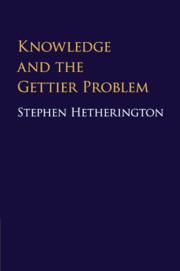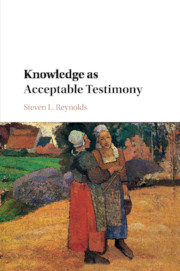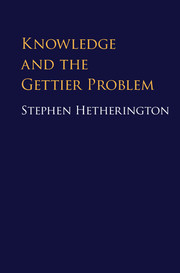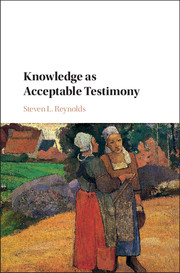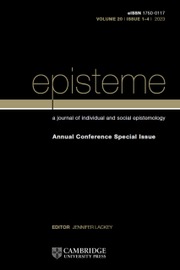Against Knowledge Closure
Knowledge closure is the claim that, if an agent S knows P, recognizes that P implies Q, and believes Q because it is implied by P, then S knows Q. Closure is a pivotal epistemological principle that is widely endorsed by contemporary epistemologists. Against Knowledge Closure is the first book-length treatment of the issue and the most sustained argument for closure failure to date. Unlike most prior arguments for closure failure, Marc Alspector-Kelly's critique of closure does not presuppose any particular epistemological theory; his argument is, instead, intuitively compelling and applicable to a wide variety of epistemological views. His discussion ranges over much of the epistemological landscape, including skepticism, warrant, transmission and transmission failure, fallibilism, sensitivity, safety, evidentialism, reliabilism, contextualism, entitlement, circularity and bootstrapping, justification, and justification closure. As a result, the volume will be of interest to any epistemologist or student of epistemology and related subjects.
- Marks the first book-length treatment of the important epistemic principle of knowledge closure, advancing our understanding of its wider relevance
- Presents a new defense of closure failure which will enable readers to re-analyze contemporary epistemological positions
- Written in non-technical language and without presupposing familiarity with the topic, making it accessible and insightful for all readers
Reviews & endorsements
'Marc Alspector-Kelly provides the most comprehensive treatment available of the much-debated topic of epistemic closure, and his own arguments are a valuable antidote to the current consensus in favor of closure. Henceforth, epistemologists who discuss closure will have to reckon with Alspector-Kelly's original and sophisticated case against this principle.' Peter Murphy, University of Indianapolis
Product details
October 2021Paperback
9781108463294
254 pages
229 × 152 × 13 mm
0.381kg
Available
Table of Contents
- 1. Motivation, strategy, and definition
- 2. Counterexamples
- 3. Denying premise 1: Skepticism
- 4. Denying premise 2: Warrant transmission
- 5. Transmission, skepticism, and conditions of warrant
- 6. Front-loading
- 7. Denying premise 3: warrant for P as warrant for Q
- 8. Denying premise 4: warrant by background information
- 9. Denying premise 5: warrant by entitlement
- 10. Abominable conjunctions, contextualism, and the spreading problem
- 11. Bootstrapping, epistemic circularity, and justification closure.


